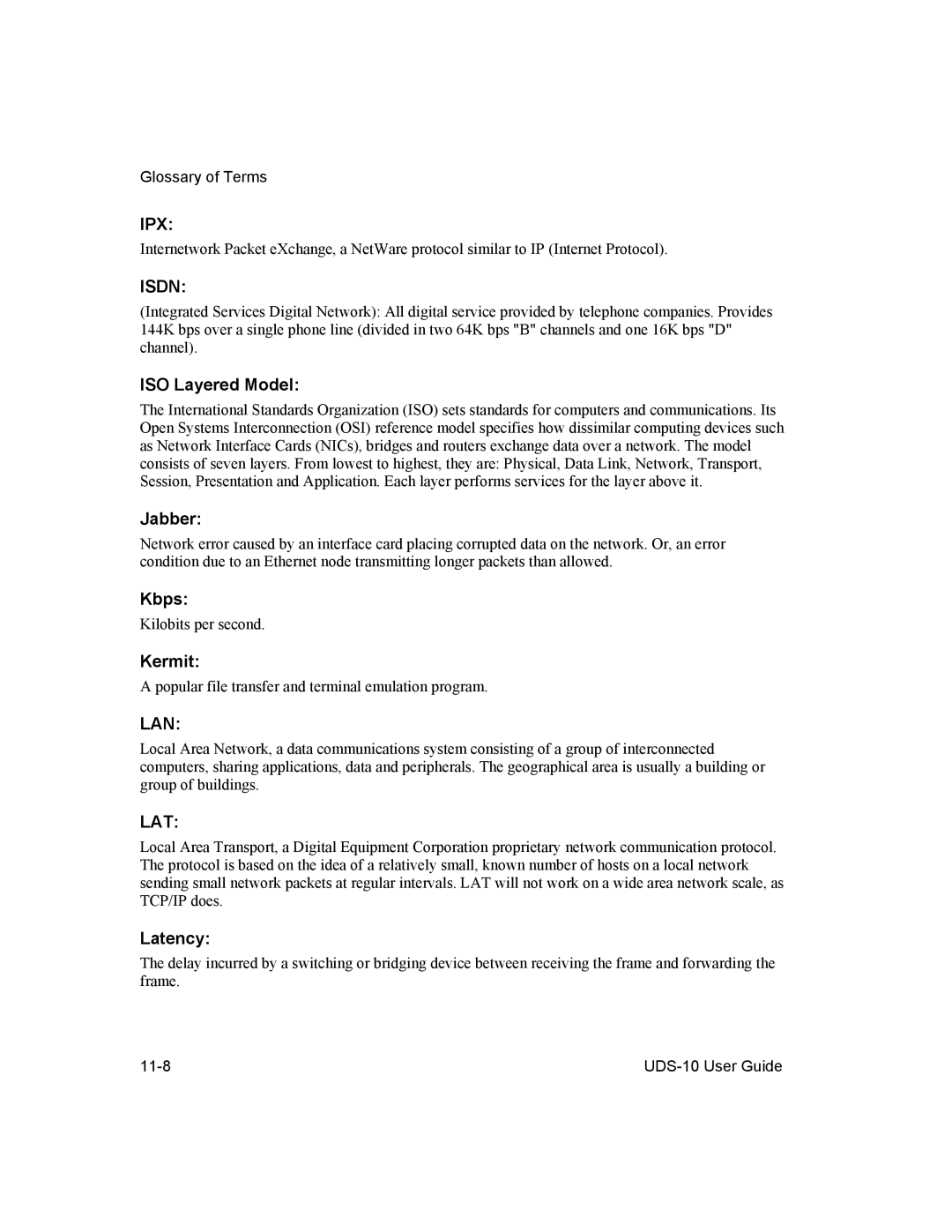Glossary of Terms
IPX:
Internetwork Packet eXchange, a NetWare protocol similar to IP (Internet Protocol).
ISDN:
(Integrated Services Digital Network): All digital service provided by telephone companies. Provides 144K bps over a single phone line (divided in two 64K bps "B" channels and one 16K bps "D" channel).
ISO Layered Model:
The International Standards Organization (ISO) sets standards for computers and communications. Its Open Systems Interconnection (OSI) reference model specifies how dissimilar computing devices such as Network Interface Cards (NICs), bridges and routers exchange data over a network. The model consists of seven layers. From lowest to highest, they are: Physical, Data Link, Network, Transport, Session, Presentation and Application. Each layer performs services for the layer above it.
Jabber:
Network error caused by an interface card placing corrupted data on the network. Or, an error condition due to an Ethernet node transmitting longer packets than allowed.
Kbps:
Kilobits per second.
Kermit:
A popular file transfer and terminal emulation program.
LAN:
Local Area Network, a data communications system consisting of a group of interconnected computers, sharing applications, data and peripherals. The geographical area is usually a building or group of buildings.
LAT:
Local Area Transport, a Digital Equipment Corporation proprietary network communication protocol. The protocol is based on the idea of a relatively small, known number of hosts on a local network sending small network packets at regular intervals. LAT will not work on a wide area network scale, as TCP/IP does.
Latency:
The delay incurred by a switching or bridging device between receiving the frame and forwarding the frame.
